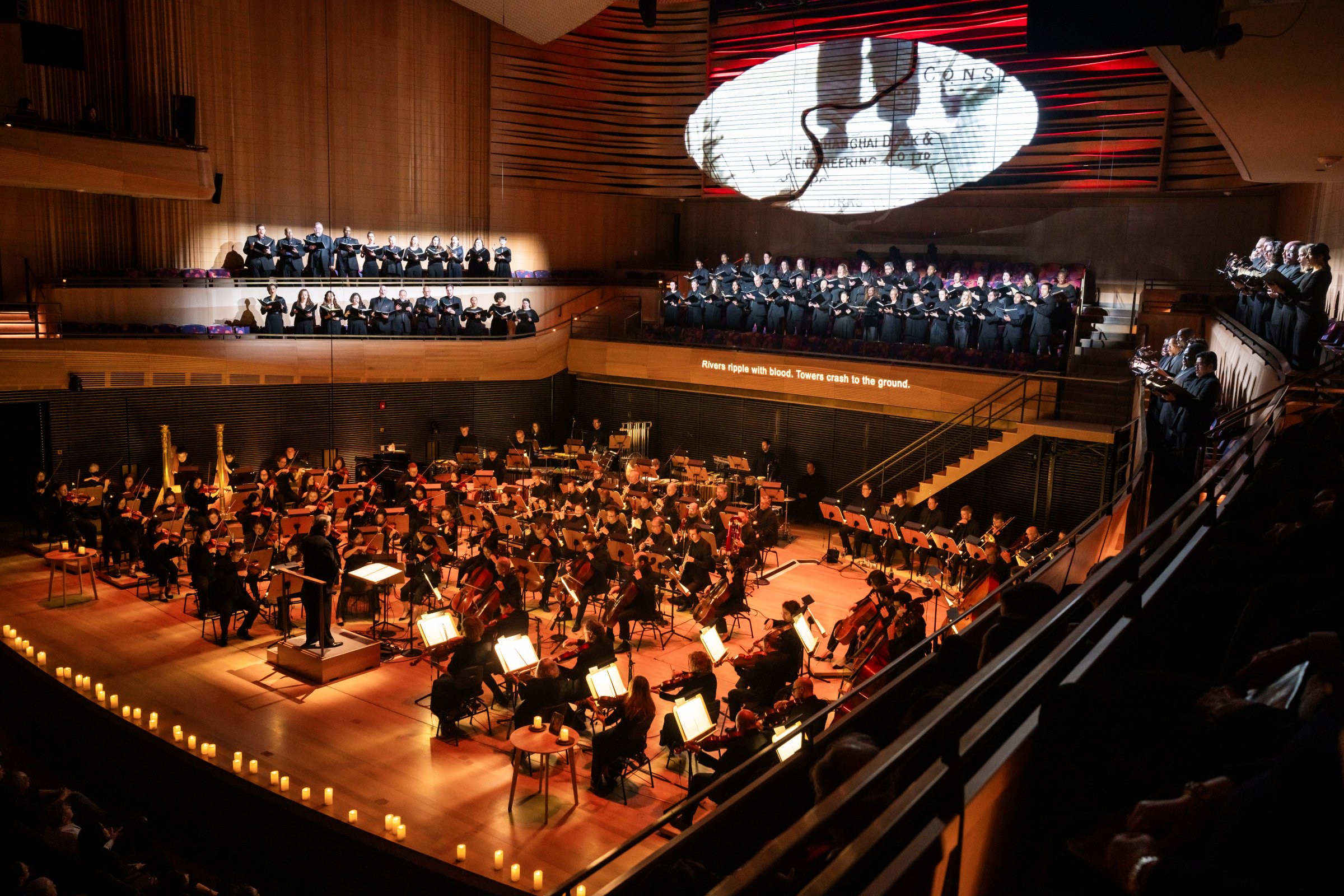
What would it take to counter the prevailing negative narratives about the Chinese in the United States and Americans in China? Émigré, a Chinese American operatic collaboration that recently premiered at Lincoln Center and will travel to Beijing, Hong Kong, and Berlin, offers one answer, with a story that humanizes East and West.
After a chill in relations, magnified by COVID-19, this co-production between New York and Shanghai could jumpstart cultural connections between the two countries. This matters because culture can open the door to improvements in other areas such as security and trade. At their November summit Presidents Biden and Xi recognized the need to seize the post-COVID moment to reacquaint their peoples with each other.
“Although our relationship may always be competitive, the two societies have to get to know each other,” said Nicholas Burns, U.S. Ambassador to China, in a recent interview with me. He added, “Cultural diplomacy is a very important part of what we do.”
For two competing superpowers, Émigré provides the perfect cultural vehicle because it portrays a moment of shared history. Unlike the tried and true Cold War approach of sending American cultural ambassadors abroad, such as the recent Philadelphia orchestra 50th anniversary tour of China, or the frequent exchanges with Chinese musicians in the San Francisco area, Émigré offers a two-way collaboration, with a modern Chinese story at its heart.
Émigré sets two fictional love stories against the backdrop of Shanghai in World War II. The narrative sheds light on a little known episode in the history of relations between China and the West.
In the late 1930s, when the U.S. and the West were turning away Jewish refugees, Shanghai accepted nearly twenty thousand people fleeing the Nazis. They joined the well-established Jewish population in the cosmopolitan city, including wealthy families, who from the early 20th century, had fueled Shanghai’s economic and cultural rise to become the “Paris of the East.”
But during the Japanese occupation, most of the Jewish community was crammed into a ghetto in the Hongkou district, one of the poorest in the city. The Chinese and Jewish populations alike were persecuted by the Japanese.
The Director of the Jewish Refugees Museum in Shanghai, Jian Chen explained to me in a recent conversation, “….they [the Chinese and the Jews in Shanghai] came together and helped each other, to fight against violence and injustice. We are inspired that in the darkest times, they let kindness be the guidance.” Émigré captures this historical moment when Lina, the fictional Chinese heroine who defies her father to marry Josef, a Jewish refugee, explains to Josef that they are “suffering comrades” (shoulan tongbao).
That Émigré tells a story of Chinese magnanimity in the face of U.S. indifference may have influenced the Chinese decision nearly five years ago, at a time of deep animosity between the two countries, to greenlight this ambitious Chinese-U.S. collaboration.
It began in 2019 when Long Yu, the renowned maestro of the Shanghai Symphony, proposed to his friend, composer Aaron Zigman (known for “The Notebook” and dozens of other film scores), and the New York Philharmonic, a partner of the Shanghai Symphony for the past decade, that they collaborate on a work that illuminates this moment of shared history between his beloved Shanghai and the West. Throughout the development of Émigré, Yu provided a guiding hand to the artistic team that included librettist Mark Campbell, lyricist Brock Walsh, and director Mary Birnbaum, reminding them that Shanghai was the lead character in the story.
Amidst a toxic media environment that demonizes the other in both the U.S. and China, Émigré, which played to enthusiastic crowds in Shanghai and New York, humanizes people usually portrayed as mutual competitors or threats. As Brock Walsh (lyricist) commented to me, “Music can play a role that nothing else can in softening peoples’ hardened positions.”
Still, contemporary politics remain. Even as China receives deserved praise for sheltering Jewish refugees from the Nazis, its own genocide of the Uighurs in Xinjiang cannot be forgotten.
The press conference for Émigré in July 2023 received considerably more attention in the Chinese media than did the actual performances in November 2023. Why? A seemingly unrelated intervening event, the Gaza war, may provide the explanation. According to Chinese and American sources, as China seeks to distinguish its “neutral” position of favoring Palestine without directly condemning Israel from the U.S.’s pro-Israel position, a low profile for this major U.S.-China collaboration might have been desirable.
Ultimately though, Émigré, available in a recording by Deutsche Grammophon, does what only culture can do: it distinguishes people from their governments. In so doing, it fulfills a need in this time of division for “stories that remind us of when people took care of each other,” as librettist Mark Campbell told me. These are essential steps towards the two societies getting to know each other again.
More Must-Reads from TIME
- Why Biden Dropped Out
- Ukraine’s Plan to Survive Trump
- The Rise of a New Kind of Parenting Guru
- The Chaos and Commotion of the RNC in Photos
- Why We All Have a Stake in Twisters’ Success
- 8 Eating Habits That Actually Improve Your Sleep
- Welcome to the Noah Lyles Olympics
- Get Our Paris Olympics Newsletter in Your Inbox
Contact us at letters@time.com